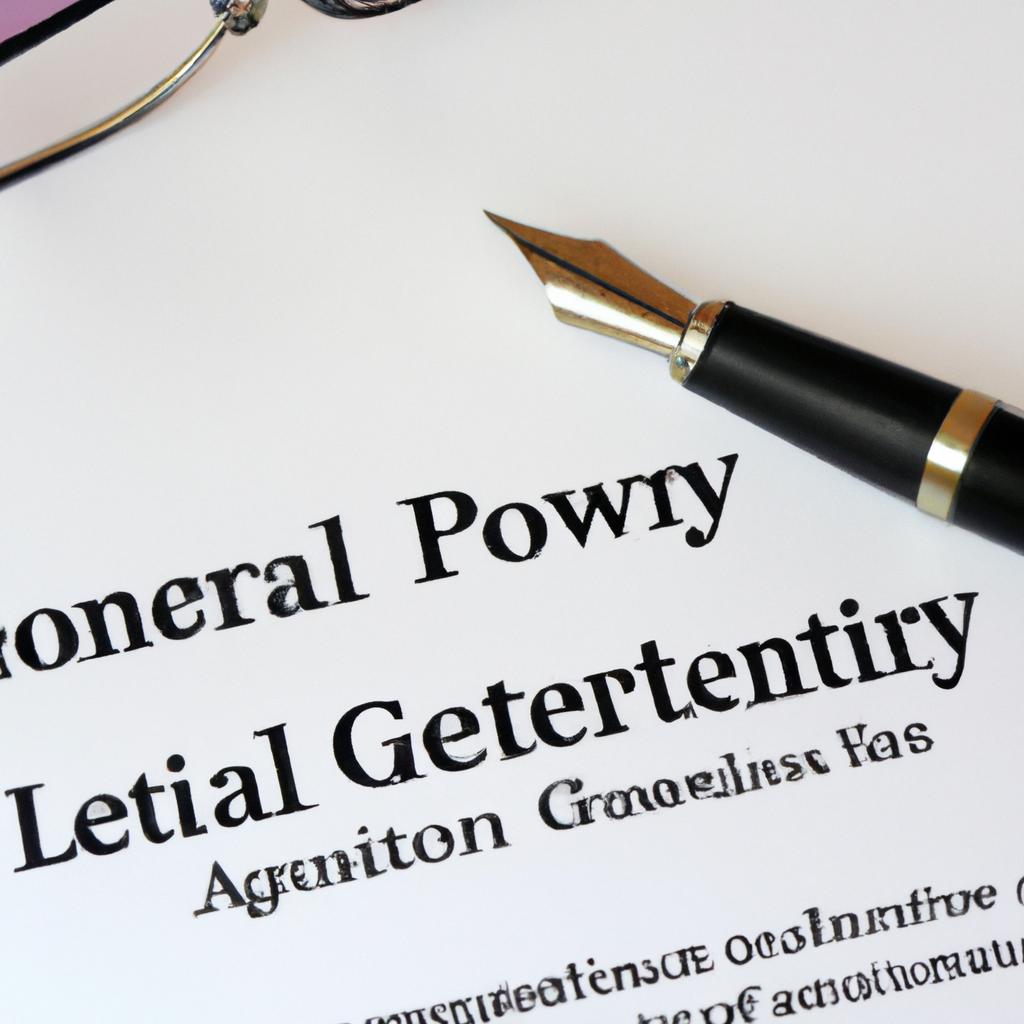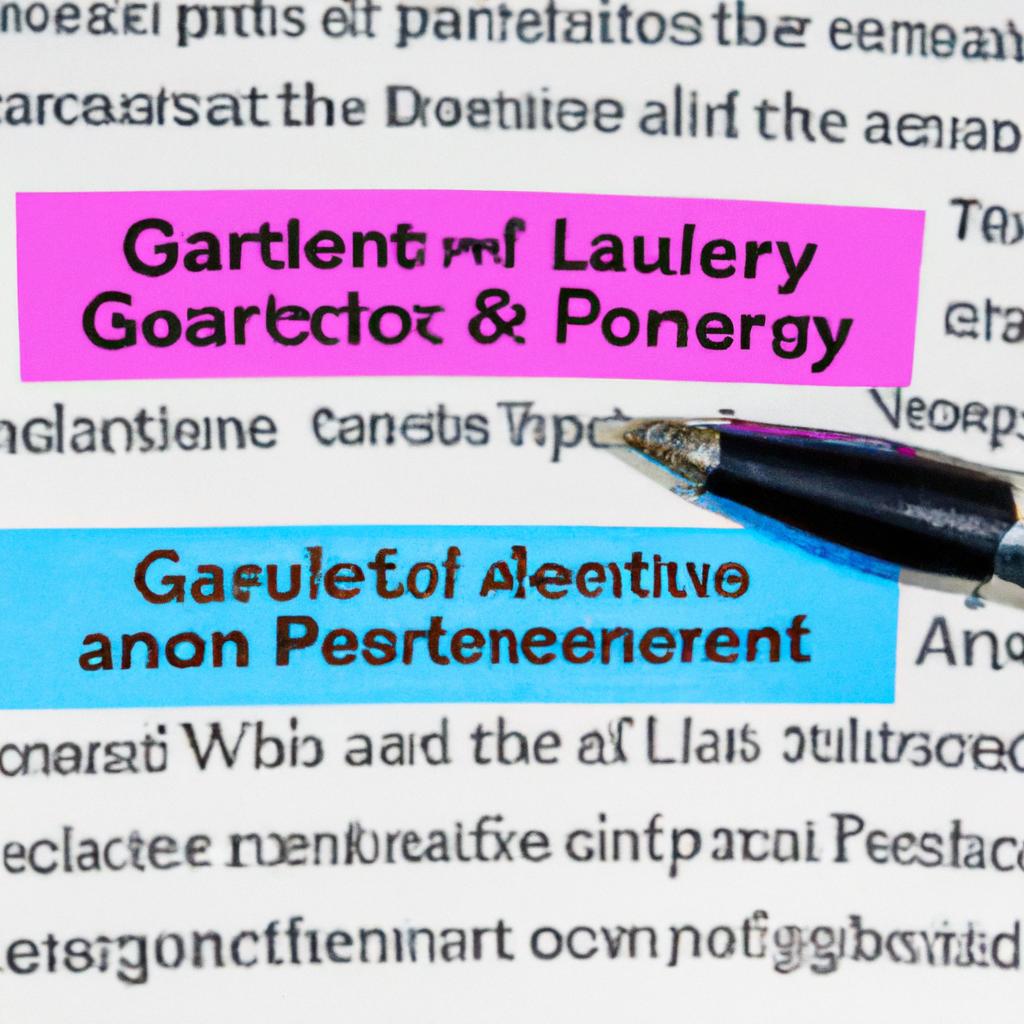In the complex world of estate planning and legal matters, the distinction between general and durable power of attorney holds significant weight. As experienced lawyers at Morgan Legal Group in New York City, we specialize in navigating the nuances of these crucial documents to ensure our clients’ affairs are handled with utmost care and precision. Join us as we delve into the differences between general and durable power of attorney, shedding light on the intricacies of these essential tools in the realm of legal representation.
General Power of Attorney: Understanding its Scope and Limitations
In the realm of estate planning, understanding the differences between a general power of attorney and a durable power of attorney is crucial. While both types of powers of attorney empower someone to make decisions on your behalf, they have key distinctions that can impact how they are used.
**General Power of Attorney:**
– Grants broad authority to act on your behalf in legal and financial matters
– Typically ceases to be valid if you become incapacitated
– Can be limited in scope or duration
**Durable Power of Attorney:**
– Remains valid even if you become incapacitated
– Can be general or specific in nature
– Provides more long-term protection and flexibility

Durable Power of Attorney: Ensuring Continuity and Protection
When it comes to power of attorney, many individuals may not fully understand the differences between a general power of attorney and a durable power of attorney. While both documents grant someone the authority to make decisions on your behalf, there are key distinctions that can have significant implications for your estate planning.
A general power of attorney grants someone the authority to make financial, legal, and other decisions on your behalf, but this authority typically ends if you become incapacitated. On the other hand, a durable power of attorney remains in effect even if you become incapacitated, ensuring continuity and protection for your assets and affairs. By choosing a durable power of attorney, you can have peace of mind knowing that someone you trust will be able to manage your affairs if you are unable to do so yourself.

Key Differences Between General and Durable Power of Attorney
When it comes to power of attorney documents, it’s important to understand the key differences between a general and durable power of attorney. While both types grant someone the legal authority to make decisions on your behalf, there are important distinctions that can impact your estate planning strategy.
One of the main differences between a general and durable power of attorney is the scope of authority granted. With a general power of attorney, the agent’s authority ends if you become incapacitated. On the other hand, a durable power of attorney remains in effect even if you become unable to make decisions for yourself. This makes a durable power of attorney a crucial tool for ensuring that your affairs are managed effectively in the event of illness or disability.

Navigating Legal Requirements and Making the Right Choice
When it comes to for your estate planning needs, understanding the differences between a general power of attorney and a durable power of attorney is crucial. While both types of powers of attorney allow you to designate someone to make decisions on your behalf, there are key distinctions that can impact your wishes and protections in the long run.
With a general power of attorney, your agent is granted broad authority to act on your behalf in various financial and legal matters. This type of power of attorney is typically used for specific tasks or time frames and can be revoked at any time. On the other hand, a durable power of attorney remains in effect even if you become incapacitated, ensuring that your agent can continue to make decisions for you when you are no longer able to do so. Understanding the implications of each type of power of attorney is essential in making the right choice to protect your interests and ensure your wishes are carried out effectively.
Q&A
Q: What is the difference between general and durable power of attorney?
A: General power of attorney grants someone the authority to act on your behalf in financial and legal matters, whereas durable power of attorney remains effective even if you become incapacitated.
Q: Do I need both types of power of attorney?
A: It depends on your specific needs and circumstances. General power of attorney can be useful for temporary situations, while durable power of attorney provides long-term protection.
Q: Can I choose different individuals for general and durable power of attorney?
A: Yes, you can designate different people for each type of power of attorney based on their strengths and abilities to handle certain responsibilities.
Q: How do I revoke a power of attorney?
A: You can revoke a power of attorney by signing a new document revoking the previous one, notifying the appointed individual in writing, and informing relevant institutions of the change.
Q: Can I have multiple powers of attorney at the same time?
A: Yes, you can have multiple powers of attorney for different aspects of your life, such as financial, medical, and legal matters, to ensure comprehensive coverage and protection.
Closing Remarks
In conclusion, when it comes to choosing between a general power of attorney and a durable power of attorney, it is important to consider your specific needs and circumstances. While general power of attorney grants broad authority that can be useful for short-term transactions, durable power of attorney offers more protection by remaining in effect even if you become incapacitated. Ultimately, the decision will depend on your individual situation and preferences. Remember to consult with a legal professional to ensure you are making the right choice for your future. Thank you for reading.


